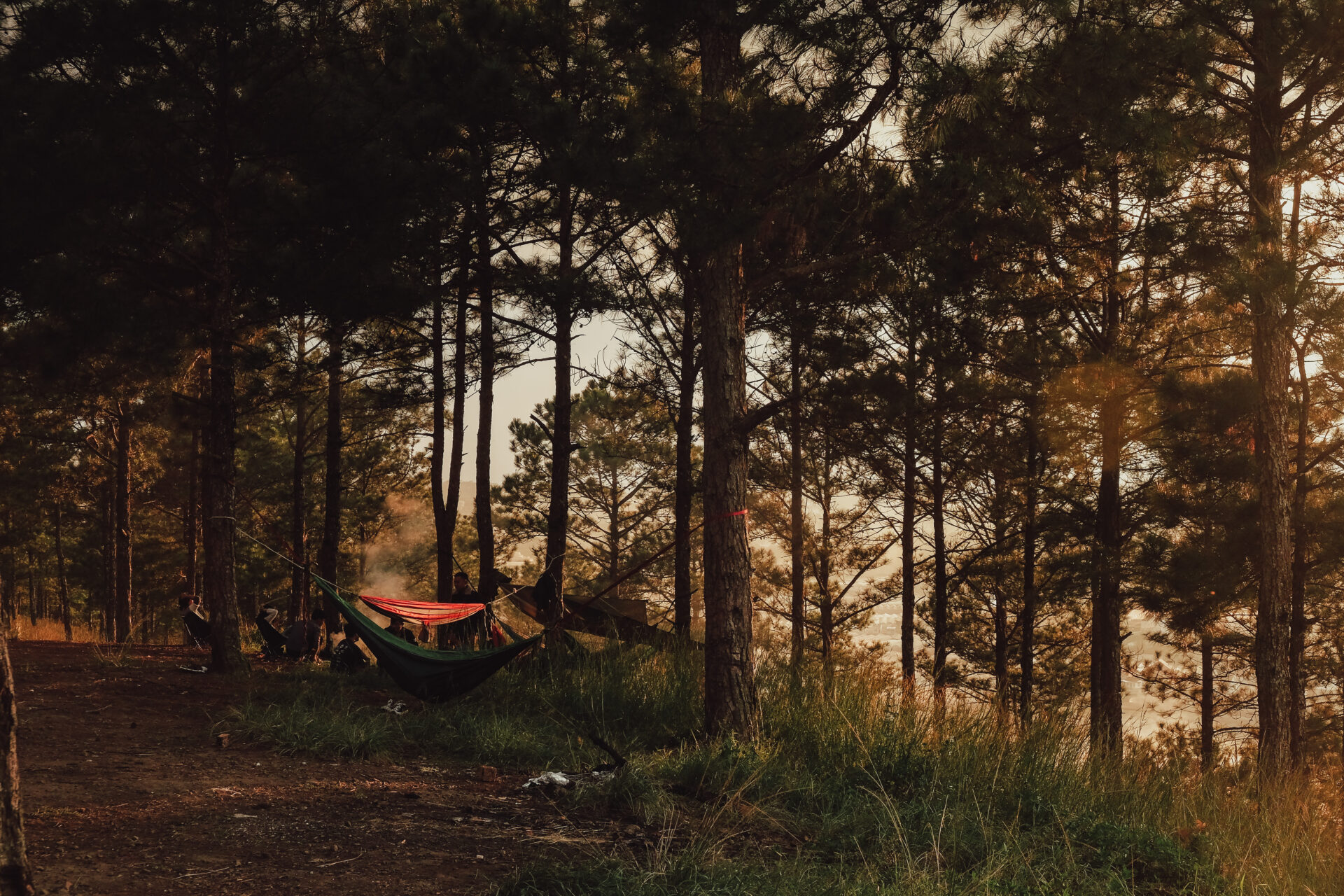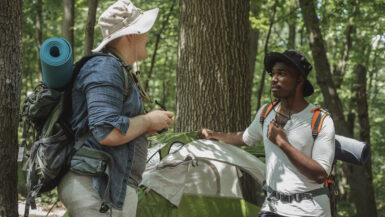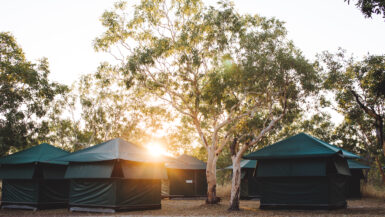Myanmar is a country of breathtaking natural beauty, with stunning landscapes that range from rolling mountains to pristine beaches. For those who love camping and the great outdoors, there are a number of eco-friendly camping sites that offer the perfect opportunity to experience the country’s natural wonders up close. From the rugged hills of Shan State to the tranquil shores of Inle Lake, there are a variety of camping options that cater to different tastes and budgets. In this article, we will explore some of the best eco-friendly camping sites in Myanmar, highlighting their unique features and what makes them a great choice for eco-conscious travelers. Whether you’re looking for a quiet retreat in the wilderness or an adventurous camping experience, Myanmar has something for everyone.
Introduction to Eco-Friendly Camping and Its Benefits
Camping is a popular form of outdoor recreation that allows people to connect with nature and enjoy the great outdoors. However, traditional camping practices can have negative impacts on the environment, such as littering, pollution, and damage to natural habitats. Eco-friendly camping, also known as green camping or sustainable camping, is an alternative way of camping that promotes responsible and sustainable practices to minimize the negative impacts on the environment.
Eco-friendly camping involves using eco-friendly gear, reducing waste, conserving resources, and respecting the natural environment. By choosing eco-friendly camping, you can help protect the environment, reduce your carbon footprint, and promote sustainable tourism.
The benefits of eco-friendly camping go beyond just environmental protection. It also provides a unique camping experience that allows you to connect with nature and learn about the local culture and environment. Eco-friendly camping sites offer a range of activities, such as hiking, bird watching, and stargazing, which can enhance your camping experience.
In Myanmar, eco-friendly camping is gaining popularity as more people become aware of the importance of sustainable tourism. There are many eco-friendly camping sites in Myanmar that offer unique camping experiences while promoting responsible tourism practices. In the next section, we will discuss the natural beauty of Myanmar and the camping opportunities it offers.
Overview of Myanmar’s Natural Beauty and Camping Opportunities
Myanmar, also known as Burma, is a country in Southeast Asia that boasts of stunning natural beauty and diverse culture. The country is home to a wide range of ecosystems, including lush forests, pristine beaches, and towering mountains. Myanmar’s natural beauty provides a perfect backdrop for eco-friendly camping, and there are many camping opportunities available for nature lovers.
One of the most popular camping destinations in Myanmar is Inle Lake, located in the Shan State. Inle Lake is a freshwater lake that is home to many floating villages and traditional markets. Camping near Inle Lake provides a unique opportunity to experience the local culture and enjoy the stunning scenery.
Another popular camping destination in Myanmar is Mount Victoria, located in the Chin State. Mount Victoria is the highest peak in the Chin Hills and offers stunning views of the surrounding landscape. Camping at Mount Victoria allows you to experience the beauty of the mountains and explore the local culture.
Myanmar is also home to many national parks and wildlife sanctuaries, such as Hlawga National Park and Alaungdaw Kathapa National Park. These parks offer a range of camping opportunities and allow you to experience the country’s rich biodiversity.
In addition to these popular camping destinations, Myanmar has many other natural attractions that are perfect for eco-friendly camping. From the pristine beaches of Ngapali to the lush forests of Kachin State, there is no shortage of camping opportunities in Myanmar.
In the next section, we will discuss the criteria for selecting eco-friendly camping sites in Myanmar.
Criteria for Selecting Eco-Friendly Camping Sites in Myanmar
When selecting eco-friendly camping sites in Myanmar, it is essential to consider several factors to ensure that you are choosing a site that promotes responsible and sustainable practices. Here are some criteria to consider when selecting eco-friendly camping sites in Myanmar:
Location
The location of the camping site is an important factor to consider. Choose a site that is located in a natural setting, away from urban areas and industrial zones. Look for sites that are close to natural attractions, such as national parks or hiking trails.
Amenities
While eco-friendly camping sites are designed to minimize the negative impact on the environment, they should still provide basic amenities to ensure a comfortable camping experience. Look for sites that offer eco-friendly and sustainable amenities such as composting toilets, solar-powered lighting, and reusable water bottles.
Waste Management
Waste management is an essential factor to consider when selecting eco-friendly camping sites. Choose sites that have a waste management system in place, such as recycling facilities and composting stations. Make sure to follow the waste management guidelines provided by the campsite to minimize your impact on the environment.
Responsible Tourism Practices
Choose camping sites that promote responsible tourism practices and support the local community. Look for sites that offer local food and products, employ local staff, and support conservation efforts in the area.
By considering these criteria, you can choose eco-friendly camping sites in Myanmar that promote responsible and sustainable practices. In the next section, we will discuss the top eco-friendly camping sites in Myanmar and their unique features and amenities.
Top Eco-Friendly Camping Sites in Myanmar, Including Their Unique Features and Amenities
Myanmar has many eco-friendly camping sites that offer unique experiences and promote responsible tourism practices. Here are some of the top eco-friendly camping sites in Myanmar:
1. The Jungle Camp, Ngapali
Located near the pristine beaches of Ngapali, The Jungle Camp offers a unique camping experience in the heart of nature. The campsite is powered by solar energy and features eco-friendly amenities such as composting toilets and rainwater harvesting. The Jungle Camp also offers a range of activities, such as hiking, bird watching, and kayaking.
2. Inle Sanctuary, Inle Lake
Inle Sanctuary is a floating eco-resort located on Inle Lake, offering a unique camping experience in the heart of the lake. The campsite is built using sustainable materials and features eco-friendly amenities such as solar-powered lighting and composting toilets. Inle Sanctuary also offers a range of activities, such as fishing, bird watching, and exploring the floating villages.
3. Golden Rock Camp, Kyaiktiyo
Golden Rock Camp is a camping site located near the famous Kyaiktiyo Pagoda, also known as the Golden Rock. The campsite offers stunning views of the surrounding mountains and features eco-friendly amenities such as composting toilets and solar-powered lighting. Golden Rock Camp also offers a range of activities, such as hiking and exploring the local culture.
4. Elephant Camp, Kalaw
Located in the Shan State, Elephant Camp offers a unique camping experience in the heart of nature. The campsite is powered by solar energy and features eco-friendly amenities such as composting toilets and rainwater harvesting. Elephant Camp also offers a range of activities, such as elephant trekking and hiking.
5. Shwe Inn Tha Floating Resort, Inle Lake
Shwe Inn Tha Floating Resort is a luxury eco-resort located on Inle Lake, offering a unique camping experience in the heart of the lake. The resort is built using sustainable materials and features eco-friendly amenities such as solar-powered lighting and composting toilets. Shwe Inn Tha Floating Resort also offers a range of activities, such as fishing, bird watching, and exploring the floating villages.
These are just a few of the many eco-friendly camping sites in Myanmar that offer unique experiences and promote responsible tourism practices. In the next section, we will discuss tips for eco-friendly camping in Myanmar, such as waste management and responsible tourism practices.
Tips for Eco-Friendly Camping in Myanmar, Such as Waste Management and Responsible Tourism Practices
Camping is a great way to connect with nature and promote sustainable tourism. However, it is important to practice responsible and eco-friendly camping practices to minimize the negative impact on the environment. Here are some tips for eco-friendly camping in Myanmar:
1. Waste Management
Proper waste management is essential for eco-friendly camping. Make sure to bring reusable containers and bags to minimize waste. Separate your waste into recyclable and non-recyclable items and dispose of them properly. If the campsite does not have a waste management system in place, pack out your waste and dispose of it in a proper facility.
2. Responsible Tourism Practices
Responsible tourism practices are essential for eco-friendly camping. Choose camping sites that promote responsible tourism practices and support the local community. Respect the local culture and environment by following the guidelines provided by the campsite. Support local businesses and buy locally sourced products.
3. Energy Conservation
Conserving energy is an essential part of eco-friendly camping. Use solar-powered lighting and rechargeable batteries to minimize energy consumption. Turn off lights and appliances when not in use.
4. Water Conservation
Water conservation is essential for eco-friendly camping, especially in areas where water is scarce. Use water efficiently by taking short showers and turning off the tap when brushing your teeth. Avoid using disposable water bottles and bring a reusable water bottle instead.
By following these tips, you can practice eco-friendly camping in Myanmar and promote sustainable tourism. In the next section, we will discuss interviews with campsite owners and visitors about their experiences with eco-friendly camping in Myanmar.
Interviews with Campsite Owners and Visitors About Their Experiences with Eco-Friendly Camping in Myanmar
To gain insights into the eco-friendly camping experience in Myanmar, we spoke to campsite owners and visitors about their experiences. Here are some of their thoughts:
1. U Thant Zin Oo, Owner of The Jungle Camp
“We started The Jungle Camp to promote sustainable tourism and protect the environment. Our campsite is powered by solar energy and features eco-friendly amenities such as composting toilets and rainwater harvesting. We also offer a range of activities, such as hiking, bird watching, and kayaking, to allow visitors to experience the beauty of nature.”
2. Caroline Smith, Visitor at Inle Sanctuary
“I had an amazing experience at Inle Sanctuary. The floating eco-resort was a unique experience, and I loved that it was built using sustainable materials and featured eco-friendly amenities such as solar-powered lighting and composting toilets. The staff was friendly and knowledgeable about the local culture and environment.”
3. Min Thu, Owner of Golden Rock Camp
“Golden Rock Camp is located near the famous Kyaiktiyo Pagoda, and we offer a unique camping experience in the heart of nature. Our campsite features eco-friendly amenities such as composting toilets and solar-powered lighting. We also offer a range of activities, such as hiking and exploring the local culture, to provide a unique experience for our visitors.”
4. Sarah Lee, Visitor at Elephant Camp
“I had a great time at Elephant Camp. The campsite was powered by solar energy and featured eco-friendly amenities such as composting toilets and rainwater harvesting. The staff was knowledgeable about the local environment and culture, and I learned a lot about the local community.”
These interviews highlight the unique experiences and benefits of eco-friendly camping in Myanmar. In the next section, we will discuss the future of eco-friendly camping in Myanmar and how it can contribute to sustainable tourism.
Future of Eco-Friendly Camping in Myanmar and Its Contribution to Sustainable Tourism
Myanmar has a vast potential for ecotourism, and eco-friendly camping is undoubtedly one of the most sustainable ways to explore the country’s natural beauty. As the demand for sustainable tourism grows worldwide, eco-friendly camping in Myanmar is expected to become increasingly popular in the coming years.
Eco-friendly camping can contribute significantly to sustainable tourism in Myanmar. By promoting sustainable practices, such as waste management, responsible tourism, and conservation of natural resources, eco-friendly camping can help protect the environment and preserve the country’s cultural heritage.
Moreover, eco-friendly camping can also provide economic benefits to local communities. Many of the best eco-friendly camping sites in Myanmar are located in remote areas, where tourism is not yet fully developed. By promoting eco-friendly camping in these areas, local communities can benefit from increased tourism revenue, job opportunities, and cultural exchange with visitors.
However, for eco-friendly camping to contribute to sustainable tourism in Myanmar, it is crucial to ensure that it is developed in a responsible and sustainable way. This means that camping sites should be carefully selected, and their impact on the environment and local communities should be assessed.
Moreover, eco-friendly camping operators should promote responsible tourism practices among visitors, such as respecting local cultures and traditions, minimizing waste, and conserving natural resources. By doing so, eco-friendly camping can become a powerful tool for sustainable tourism in Myanmar, contributing to the country’s economic development while preserving its natural and cultural heritage.
In conclusion, eco-friendly camping in Myanmar has a bright future ahead, with the potential to become a significant contributor to sustainable tourism in the country. By promoting responsible tourism practices and conserving natural resources, eco-friendly camping can help protect the environment and support local communities while providing visitors with an unforgettable experience of Myanmar’s natural beauty.
Conclusion and Call to Action for Promoting Eco-Friendly Camping in Myanmar
Eco-friendly camping in Myanmar offers a unique opportunity to explore the country’s natural beauty while promoting sustainable tourism practices. By selecting eco-friendly camping sites, practicing responsible tourism, and supporting local communities, visitors can contribute to the preservation of Myanmar’s cultural and natural heritage while enjoying a memorable camping experience.
As the demand for sustainable tourism grows worldwide, it is essential to promote eco-friendly camping in Myanmar and raise awareness about its benefits. By doing so, we can support the development of sustainable tourism in the country and contribute to the protection of its unique cultural and natural assets.
To promote eco-friendly camping in Myanmar, we can start by sharing information about the best eco-friendly camping sites and their unique features and amenities. We can also encourage responsible tourism practices, such as minimizing waste, respecting local cultures and traditions, and conserving natural resources.
Moreover, we can support local communities by choosing eco-friendly camping sites that are owned and operated by local people. By doing so, we can contribute to the economic development of remote areas and support cultural exchange between visitors and locals.
In conclusion, eco-friendly camping in Myanmar is an excellent way to explore the country’s natural beauty while promoting sustainable tourism practices. By selecting eco-friendly camping sites, practicing responsible tourism, and supporting local communities, visitors can contribute to the preservation of Myanmar’s cultural and natural heritage while enjoying a unique and unforgettable camping experience. Let’s promote eco-friendly camping in Myanmar and support sustainable tourism in the country.





Leave a reply